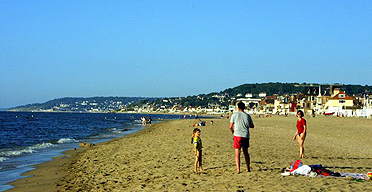
Even if you book an all-inclusive break, your holiday spending does not end when you leave the travel agent or log off the website. You may not want to worry about budgeting while you are away, but you should try to make your money go as far as possible. There are a few simple ways of ensuring as little cash as possible is eaten up by commission and charges.
Some countries, such as Tunisia and Morocco, have closed currencies, which means you cannot exchange money before you get there. But where the currency is available at home it is a good idea to buy it before you leave, unless you are a seasoned traveller, have been to your destination before and know the drill for foreign currency exchange.
In some places, you could get cheaper currency at your destination but if you go with fingers crossed, you could find very high exchange rates, a dearth of cash machines and banks closed for holidays you did not know about.
That said, it is not a good idea to delay buying your currency until you reach the airport though, as providers often charge high rates. You are likely to find a better deal on the internet or high street, so try to organise your money before you pack your suitcase.
"Consumers should perhaps look away from their own bank or travel agent and take the time to shop around a few providers," says Lisa Taylor of financial information provider Moneyfacts. Hugh Stacey of the Post Office, which leads the market with 25% of foreign exchange activity takes a different stance: "You can shop around for hours and hours and save 30p."
He is right in that the savings may be small - research from First Direct shows that on the average £550 exchange deal into euros or US dollars, there is a difference of £19 between the best and the worst providers. Nevertheless, that sum would still be enough for a few cocktails or ice creams.
Shopping around
To make valid comparisons, you need to compare both exchange rates and commission or handling charges. Some providers - notably the Post Office and Marks & Spencer - have abandoned commission charges, so their costs are more transparent. Unless you enjoy shopping around, you might be better off going for an old reliable.
The Post Office claims that it will always be in the top five best rates compared to other leading providers for each of the 70 currencies it offers. Taylor says that in a mystery shopping exercise by Moneyfacts, "providers such as Marks and Spencer and the Post Office - not perhaps your first choice - proved to be very competitive".
Some travelers opt to only take cash on their holidays, particularly with the advent of the euro. But if you are unlucky and lose your money or have a costly emergency, it is worth having a mixture of cash, your usual plastic cards and travellers cheques. Travellers cheques in the new plastic form can be used in banks or at cash machines - although you will probably be charged for a withdrawal.
The Post Office, for example, charges £2 per withdrawal, while American Express charges £1.50. If you lose them, you should ring your bank immediately as you can get the card cancelled and your money restored to you later.
You can use your usual debit and credit cards in most cities, but you may get stuck in more remote regions. Do not depend on plastic if you are venturing off the beaten track. You are also likely to face charges when you use them, both in cash machines and for purchases.
However, if you have a Nationwide current account you will not be charged for using your debit card in a foreign cash machine. And a Nationwide credit card has no commission charges for use abroad. "Nationwide cards are very good value for using abroad," says Peter Gerrard of price comparison site Moneysupermarket.
Citibank also offers free withdrawals from cash machines in the EU for holders of its euro current account, which can be linked to a sterling account, although its minimum balance for fee-free banking is £2,000.
Warn your bank
Whoever you bank with it is worth putting in a call before you go away to say you may be using your cards overseas. If you let it know you may be spending large amounts gambling in Las Vegas or buying electronic goods in Asia, the bank should not block your card when you try to do so on the suspicion it has been stolen.
Look after your cards when you get to your destination by using hotel safes for cash, not letting your credit cards be taken out of your sight and being careful when using cash machines. Spain is the worst country for credit card theft, according to credit card protection company, CPP.
When it comes to exchange rates, timing is everything. Had you planned a trip to Iceland last year, for example, you would have got a lot less for your money than today. Looking at currency movements over the past year, Royal Bank of Scotland calculates that Britons would get 13% more Icelandic krona for their pound now than they did a year ago. Iceland is the best location in these terms, narrowly beating the Dominican Republic (up 12.9%) and New Zealand (up 10%) and Japan (up 5%).
But most of us do not decide on our holiday locations, or the timing of our breaks, in this way. Some 90% of us will still go to Europe or America and buy either euros or US dollars, despite the fact that sterling will buy 1% fewer euros than a year ago, and 3% fewer US dollars.

